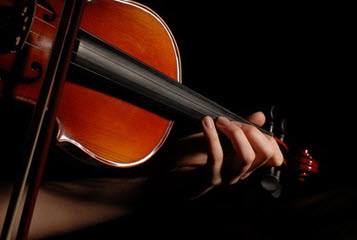Less culture on the countryside
Not surprisingly, where you live will determine how much culture you're exposed to.
-
 Folks living in the bigger cities in Sweden are more likely to be higher consumers of culture than those who live in the countryside. However, practicing culture, such as playing the violin, is as common in rural and urban areas.
Folks living in the bigger cities in Sweden are more likely to be higher consumers of culture than those who live in the countryside. However, practicing culture, such as playing the violin, is as common in rural and urban areas. -
-
Cultural shortage on countryside
Where you live will determine your cultural consumption. The farther out in the countryside you live, the less culture you’ll consume. But when it comes to practiced culture, the difference between rural and urban is small. The SOM Institute at Göteborg University has interviewed and mapped out Swedes' cultural habits since 1986. Their statistics show that gender plays a big part in how much culture we participate in. Women are much more likely to seek out culture than men. But demographic factors are also important. -
“The studies we’ve done show that the nearness to cultural institutions matters. There’s a distance factor at play, and it is a little bigger in those with less education. People with higher education have an easier time overcoming cultural distance,” says Lennart Weibull, professor of mass media research at the SOM Institute. And Erik Peurell, investigator at Myndigheten för Kulturanalys (the Authority for Cultural Analysis) agrees: “In the bigger cities we find the most active culture consumers. There we find the ones who can afford it, because they have well-paid jobs. And in order to get a well-paid job, you need a higher education. When you look at who consumes culture, the socio-economic factors are relevant.” People in the bigger cities therefore consume considerably more culture than those living in the countryside. But when it comes to practicing culture, like playing an instrument or writing poems, the differences are almost non-existent. “Here there’s no distance aspect. You always have access to yourself. The practiced culture is also not as related to education. You could say that practiced culture is classless,” says Lennart Weibull.
-
-
